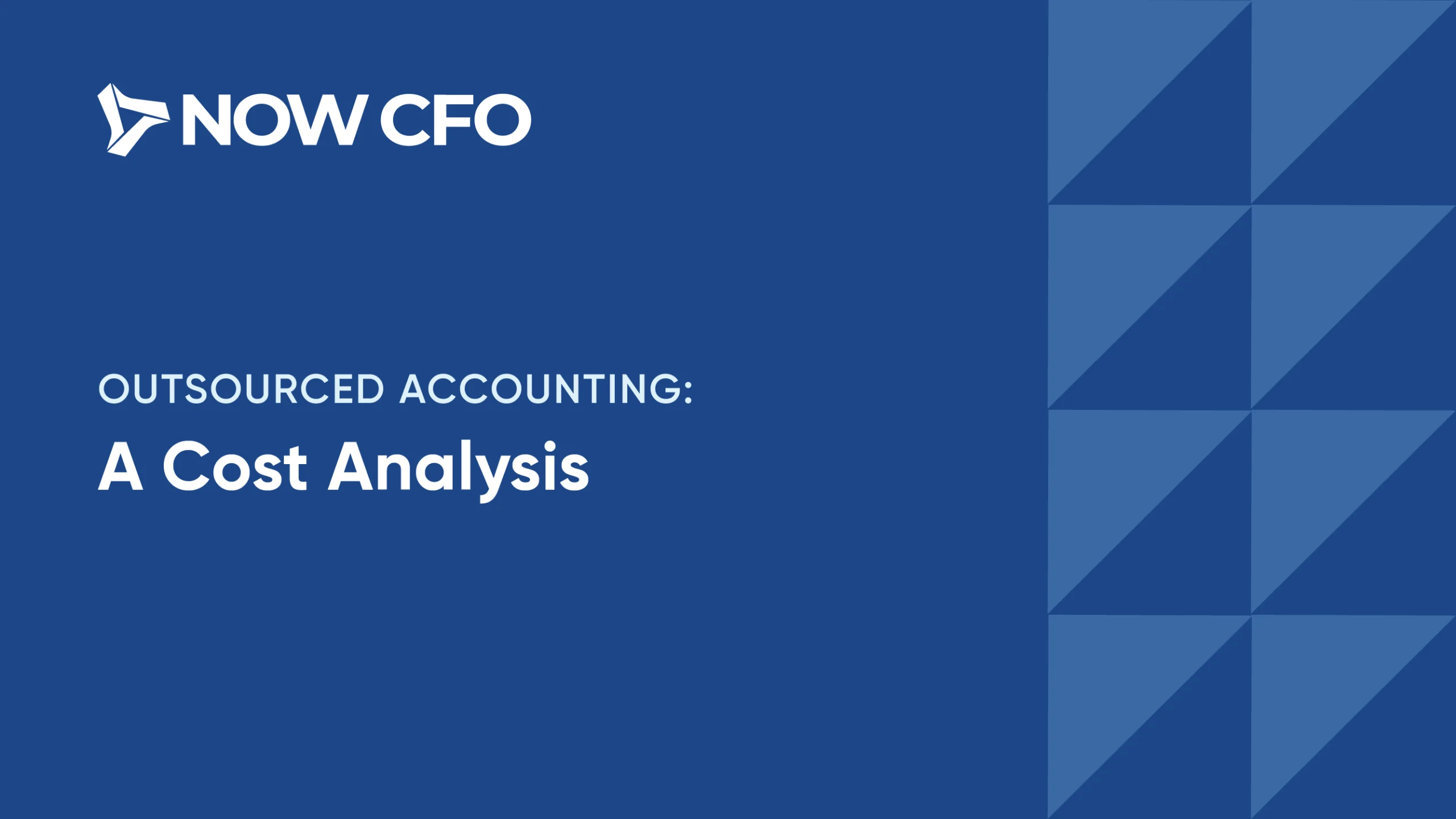How a Fractional Controller Contributes to Your Business
Did you know that it costs $255,802 for the median salary of a full-time financial controller? A fractional controller is a finance professional who provides part-time controller services to businesses. Unlike a full-time controller who works exclusively for one company, a fractional controller works with multiple clients, offering the same level of expertise on a more flexible basis. This allows businesses access high-level financial management without the commitment and cost of a full-time hire.
Benefits of Hiring a Fractional Controller
Hiring a fractional controller can provide your business with a range of advantages. Here are some of the key benefits:
- Cost Savings and Flexibility: One advantage of hiring a fractional controller is the cost savings. Businesses can access top-tier financial wisdom without the overhead costs associated with a full-time employee. This especially benefits businesses that may not need a full-time controller but still require sophisticated financial oversight.
- Access to Specialized Expertise: Fractional controllers bring a wealth of specialized knowledge. They often have diverse backgrounds and have worked with various industries, so they can offer valuable insights into your business needs. This expertise can be crucial for strategic decision-making, helping your business navigate complex financial landscapes.
- Scalable Financial Management for Growing Businesses: Your financial needs will evolve as your business grows. A fractional controller provides scalable solutions that adapt to your business’s changing requirements. This ensures you have the right financial oversight level at every growth stage without overcommitting resources.
Roles and Responsibilities
A fractional controller takes on several crucial tasks for maintaining financial health. Here are the key responsibilities they handle:
- Financial Reporting: A fractional controller’s primary responsibility is financial reporting, ensuring accurate and timely financial statements. They prepare comprehensive financial reports showing your company’s financial status, helping you understand your profitability, expenses, and financial trends.
- Budgeting: Fractional controllers develop and monitor budgets to efficiently control costs and allocate resources. They work with different departments to create realistic budgets, track performance against these budgets, and adjust them as needed to reflect changes in the business environment.
- Cash Flow Management: This is critical to maintaining operational stability. A fractional controller monitors cash inflows and outflows, ensuring your business has sufficient liquidity to meet its obligations. They implement strategies, such as effectively improving receivables collection and managing payables.
- Strategic Decision Making: A fractional controller provides insights and data-driven recommendations to support business strategy. Analyzing financial data helps identify opportunities for growth, areas for cost reduction, and potential risks. Their input is invaluable in making informed decisions that align with your long-term business goals.
When to Consider a Fractional Controller
Recognizing the right time to bring in a fractional controller can significantly impact your business’s financial health and operational efficiency. Here are key indicators that your business might benefit from their knowledge:
- Rapid growth or scaling efforts: Managing finances can become increasingly complex when your business is experiencing rapid growth. A fractional controller can navigate this growth by providing the financial oversight needed to support expansion efforts and ensure that your financial practices scale appropriately with your business.
- Increasing complexity in financial operations: As businesses grow, their financial operations become more complicated. Multiple revenue streams, diverse expense categories, and intricate budgeting requirements can overwhelm existing financial management structures. A fractional controller can streamline these operations, bringing clarity and efficiency.
- Need for improved financial reporting and analysis: Accurate and insightful financial reporting is crucial for making informed decisions. A fractional controller can enhance these processes if your financial reports lack detail or timeliness. They ensure you have the data needed to understand your financial position and plan effectively for the future.
- Budget constraints that make hiring a full-time controller impractical: For many small and medium-sized businesses, the cost of a full-time controller is prohibitive. A fractional controller offers a cost-effective alternative, providing high-level expertise without the associated overhead of a full-time position. This allows businesses to access essential financial management services within budget constraints.
Impact on Financial Health
Hiring a fractional controller can significantly enhance your business’s financial health in several key areas. Here are the main ways they contribute:
- Improving Accuracy and Reliability of Financial Data: A fractional controller ensures that your financial data is accurate and reliable. This precision is essential for making informed business decisions, building stakeholder trust, and preventing costly errors.
- Enhancing Financial Planning and Analysis: Fractional controllers bring expertise in financial planning and analysis, helping you develop robust financial strategies. They provide insights that enable proactive planning and better resource allocation, ensuring your business is prepared for future challenges and opportunities.
- Risk Management and Internal Controls: Another critical role of a fractional controller is implementing strong internal controls and risk management practices. Identifying potential risks and establishing controls safeguard your business’s financial health, minimizing the chances of fraud and financial discrepancies.
Cost-Effectiveness
Hiring a fractional controller can be a highly cost-effective solution for many businesses. Here’s a closer look at why this approach makes financial sense:
- Comparing Costs of Fractional Controllers Versus Full-Time Controllers: Hiring a full-time controller involves significant expenses, including a high salary, benefits, and other overhead costs. On the other hand, a fractional controller provides the same level of expertise and service part-time, which can dramatically reduce these costs. This makes fractional controllers an attractive option for businesses that need high-level financial oversight without the financial burden of a full-time employee.
- Return on Investment (ROI) from Hiring a Fractional Controller: Engaging a fractional controller can be substantial. By improving financial management practices, enhancing the accuracy of financial data, and implementing cost-saving measures, fractional controllers can help businesses achieve significant financial efficiencies. These improvements can lead to more strategic decision-making, reduced financial risks, and increased profitability. Investing in a fractional controller can yield dividends far beyond their cost, making them a wise financial decision for many businesses.
Strategic Decision Making
A fractional controller is an invaluable asset in strategic decision-making. By leveraging their expertise and insights, businesses can make more informed decisions. Here are some key ways a fractional controller supports strategic initiatives:
- Providing Financial Insights: A fractional controller analyzes your financial data and identifies trends, opportunities, and potential challenges. This analysis provides:
- A clear picture of your financial health.
- Allows you to make informed decisions.
- Expansions.
- Other strategic moves.
- Data-Driven Recommendations: With their extensive experience, fractional controllers offer recommendations based on solid data. These data-driven insights help you prioritize initiatives, allocate resources efficiently, and pursue strategies most likely to succeed.
- Supporting Business Strategy: Fractional controllers contribute to the business strategy by aligning financial goals with strategic objectives. They work closely with management to ensure financial planning supports long-term growth and sustainability. Their input creates a cohesive strategy that balances ambition with financial prudence.
A fractional controller offers numerous benefits, including cost savings, access to specialized expertise, and improved financial management. Their role is vital in strategic decision-making, helping businesses navigate financial complexities and achieve long-term success.
Need help to find a fractional controller? Contact a NOW CFO specialist for more information.
Learn More: The Role Of A Controller In Your Business














